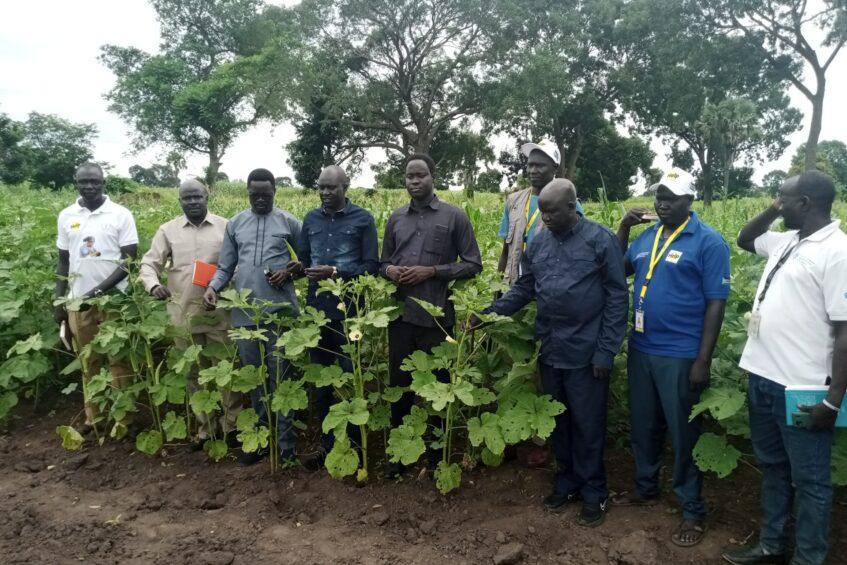Africa-Press – South-Sudan. A more than Euro 36 million EU-backed project to boost agriculture and climate resilience across four South Sudanese states in the next four years has officially launched in Lakes State.
The initiative—called the Green and Resilience Agriculture and Climate Economy project, or GRACE—was officially launched on June 25 by the government of Lakes State over the weekend.
The four-year project aims to benefit over 141,000 people across Lakes, Central Equatoria, Western Equatoria, and Northern Bahr el Ghazal states.
It will directly support 22,770 smallholder farmers, 360 producer groups, and 23 cooperatives through a community-based approach.
GRACE will be implemented in selected counties, including Cueibet and Wulu in Lakes State; Terekeka and Juba in Central Equatoria; Nzara in Western Equatoria; and Aweil Centre, Aweil South, and Aweil North in Northern Bahr el Ghazal.
The project is being delivered in close coordination with local authorities at all administrative levels—from state to Boma—and in partnership with the private sector and the GIZ/SNV consortium.
The total budget is just over EUR 36.4 million, with EUR 35.2 million funded by the European Union, and the remaining amount co-financed by partners.
The key objective is to promote a green and sustainable economy, improve food and nutrition security, build resilience to climate shocks, and create jobs.
David Lugeron, Head of the World Food Programme in Lakes State, said the region has the potential to contribute far beyond its borders.
“Lakes State doesn’t only have potential for itself, but for the whole country. The GRACE project has come at the right time. We’ve been praying for this,” he said.
“The project’s success depends on our shared understanding and efforts. It’s about making change possible through our roles as WFP, FAO, and other frontline organizations.”
Poth Majak Daljang, the State Minister of Agriculture, Forestry, and Environment, welcomed the project, saying that nine Payams in Cueibet and four in Wulu County are already part of the plan.
He also said that improved security is making implementation possible in places that were previously inaccessible, but warned that water remains a key obstacle.
There are now peaceful areas. Once inaccessible communities are now open. We welcome partners and will work with them at all levels—state, county, and Boma. Agriculture cannot succeed without water. For vegetables, hand pumps are not enough—we need proper water yard systems to boost production.”
Hannington Sebaduka, FAO Head of Field Office in Rumbek, called GRACE a major shift from short-term to long-term initiative and urged the stakeholders to ensure its success.
“This four-year commitment is a major shift from past six-month or one-year projects. We have the people, the structure, and the strategy. Now we must ensure the outcomes are realized—from Payams to Bomas and villages.”
Wani Julius, Resilience Program Coordinator for Norwegian People’s Aid, echoed Sebaduka ‘s remarks, describing the multi-year approach as an opportunity.
“Real agricultural change takes time. This four-year window gives us that opportunity. We’ve already engaged with key stakeholders in Cueibet and held meetings with state officials,” he said.
“Despite stiff competition, our team is strong and committed to delivering results in collaboration with WFP, FAO, and international trade.”
Meanwhile, the Relief and Rehabilitation Commission, Deputy Chairperson Samuel Aberic Makur, described the GRACE project as a serious, long-term commitment.
“Unlike previous seasonal projects, this one is here for several years. We at RRC will oversee its implementation and ensure transparency. There may be hurdles, but as the mandated third party, RRC will make sure any operational issues are corrected, and that is our mandate.”
For More News And Analysis About South-Sudan Follow Africa-Press






